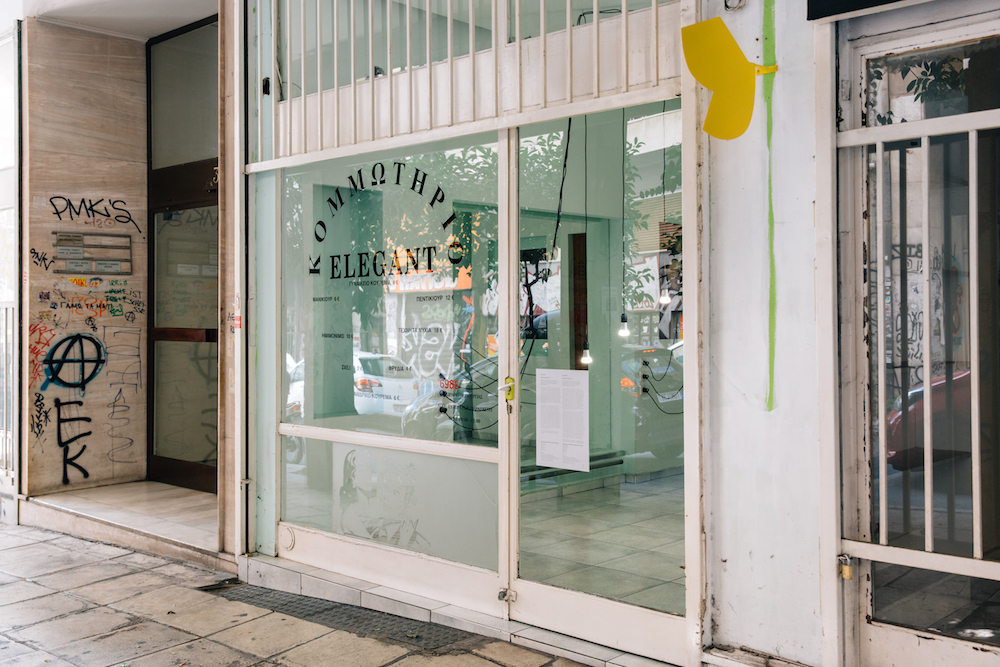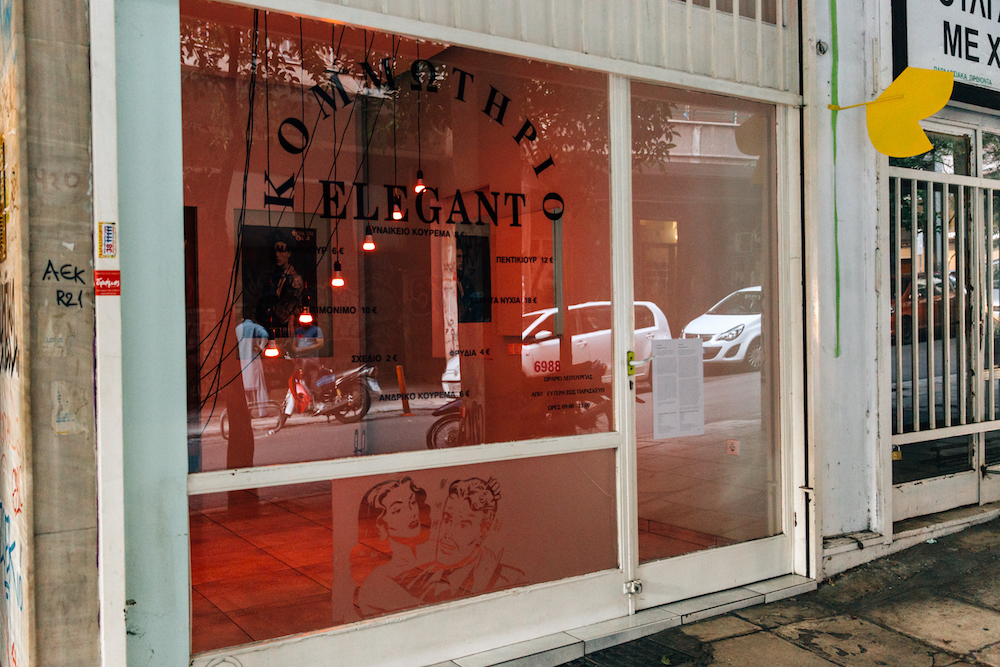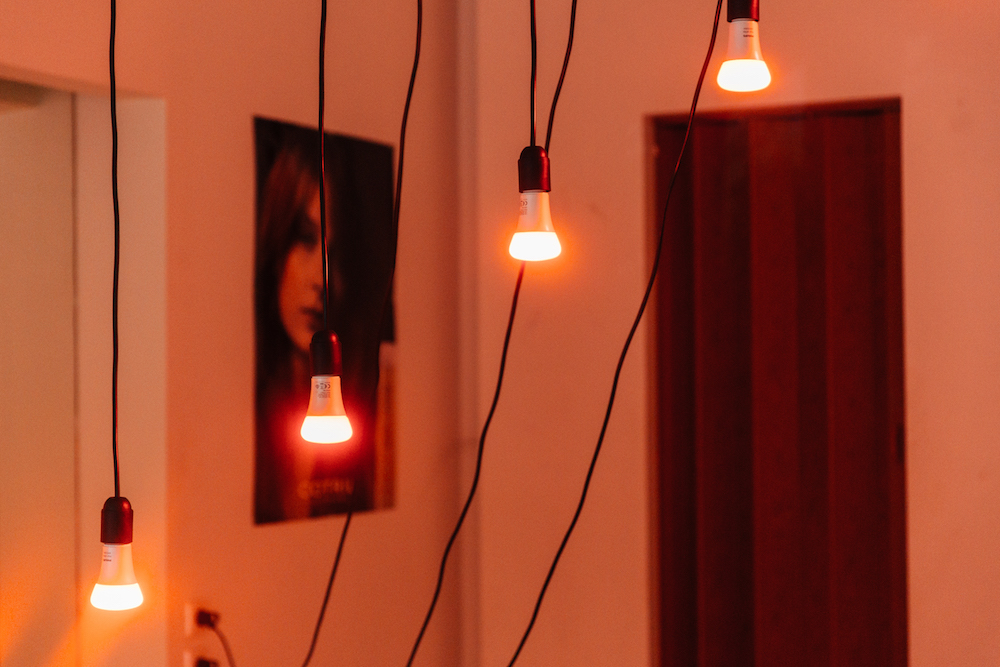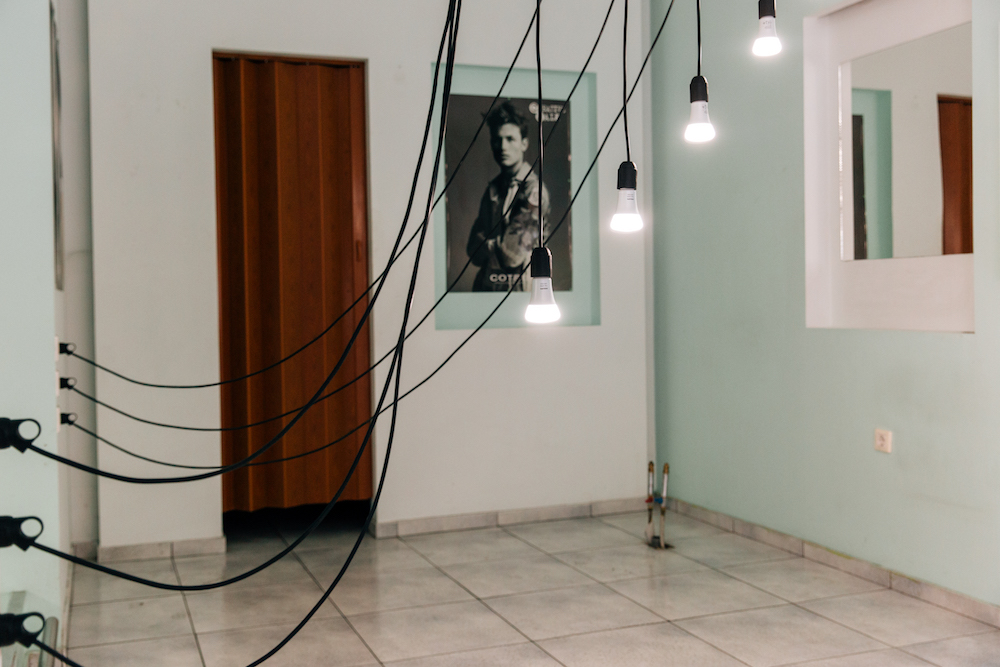Cheaper by the Dozen
2017
Site-specific installation: Philips Hue light bulbs, Philips Hue wireless bridge, ethernet bridge, router, Raspberry Pi, open-source and custom software.
Created and installed for Driftwood, or how we surfaced through currents, curated by Evelyn Simons, supported by project coordinator Ilektra Kalaitzaki, in Athens.
A former hairdressers on Arachovis Street forms the context for an installation of “smart” lights programmed according to statutory international working hours. Operating at fixed hours, they take into account the limits to weekly working hours, periods of rest and holiday. James Bridle employs the increasingly widespread technology of the “internet of things” to make visible the EU Working Time Directive (2003/88/EC) which was created to protect workers’ rights. When activated, the light bulbs shine continuously during working hours, go dim and change colour during overtime and non-working hours. In addition, the lights change periodically to visualise the different actual working hours around the globe.
Cheaper by the Dozen continues James Bridle’s interest in algorithmic law, the processes of automation, and the political implications of the "internet of things". By addressing the guidelines to working hours in the context of a deactivated hairdressers shop, the artist draws upon the sensitivities and prejudices inherent to national working rhythms and the gross domestic product. More specifically, Bridle took inspiration from Frank and Lillian Gilbreth, pioneers of scientific management and the study of time and motion, who measured and assessed workers’ productivity through the technique of light painting. Their theoretical heritage was fundamental to the deployment of labour practices in the 20th century, just as the implementation of often opaque political intent in software is fundamental to those of the 21st century. By inserting other social values into the software layer of contemporary labour practices, the work seeks to challenge the logic of technodeterminism and alienation deployed by late capitalism.
Average annual working hours around the world:
Greece: 2042
Germany: 1371
Italy: 1725
Qatar: 3313
US: 2184
China: 2200
Sources:
Greece, Germany, Italy: Organisation for Economic Co-operation and Development, 2016
Qatar: Amnesty International, BBC, Government of Qatar, 2016
USA: Bureau of Labour Statistics, 2016
China: Beijing Normal University, 2014
→ More photographs - All photographs by Paris Tavitian.




